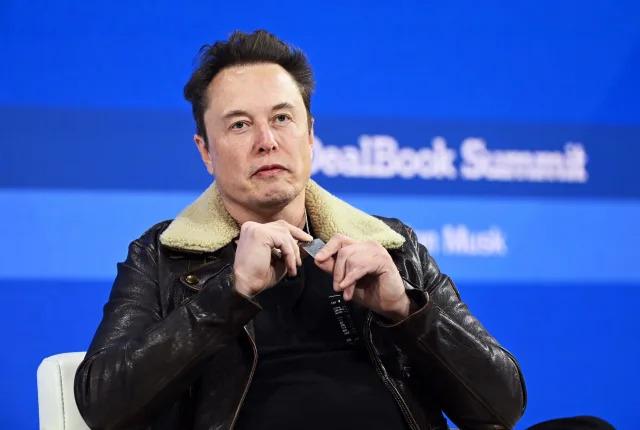Dive into the explosive controversy surrounding Elon Musk’s clash with advertisers over antisemitism on social media platform X. Explore Musk’s fiery remarks, the fallout, and the broader implications in this gripping article.

In a heated interview, billionaire Elon Musk lashed out at advertisers who departed his social media platform X due to the presence of antisemitic content, bluntly telling them to “Go fuck yourself.” Musk’s fiery comments were an intense follow-up to his expression of regret during a New York Times DealBook Summit session, where he repeatedly apologized for endorsing an anti-Jewish post on November 15.
The Tesla CEO faced considerable backlash after agreeing with a user who falsely accused Jewish people of inciting animosity against white individuals, endorsing a conspiracy theory known as the “Great Replacement.” Musk, acknowledging his mistake, admitted that his post was perhaps the worst in a history marked by several “foolish” messages, acknowledging that it handed ammunition to both detractors and antisemitic groups.
These controversial remarks have caused ripples throughout X, placing pressure not only on Musk but also on Chief Executive Linda Yaccarino. Despite this, an executive confirmed Yaccarino’s decision to remain with the company, emphasizing Musk’s apology and the platform’s stance on the matter.
Attempting to clarify the platform’s stance, Yaccarino highlighted Musk’s apology and emphasized X’s unique intersection between Free Speech and Main Street, extending gratitude to partners who supported their meaningful work. Meanwhile, Musk vehemently denied being antisemitic and warned departing advertisers against attempting to coerce him through financial means, using explicit language to convey his stance.
Furthermore, Musk expressed his prioritization of the reality of goodness over its mere perception, criticizing those who prioritize appearances while perpetrating malevolence. This outburst, according to marketing expert Lou Paskalis, marked a pivotal moment, potentially closing the door for brands considering business ties with X.
Also Read:- Argentina’s Political Earthquake: How Javier Milei’s Shocking Win Redefined the Nation’s Future!
In an effort to redirect attention, Musk urged dissatisfied customers to focus on the quality of his company’s products, citing Tesla’s electric cars and SpaceX’s achievements. Additionally, he asserted his environmental contributions through Tesla, claiming to have done more for the environment than any individual on the planet.
However, Musk’s controversial post coincided with U.S. Senate Majority Leader Chuck Schumer’s warning about the alarming rise of antisemitism, emphasizing its global threat and impact on Jewish safety and Israel’s future. The White House condemned Musk’s post for promoting antisemitic and racist hate, further complicating the situation.
Following the fallout, major U.S. corporations suspended their ads on X, triggered by a report from Media Matters, which highlighted ad placements near posts supporting Nazism. Musk, in a resolved tone, blamed advertisers for the potential financial downfall of X, asserting that the company’s fate would be determined by the consequences of the advertiser boycott.
Attempting damage control, Musk visited Israel, distancing the trip from the ongoing issue and asserting his stance against hate speech and antisemitism. During his time there, he received a symbolic dog-tag from the father of an Israeli hostage held by Hamas, promising to wear it until all hostages were freed.
Also Read:- Rosalynn Carter Death: Former US First Lady Dies at 96
Despite the controversy, Elon Musk‘s interview covered various topics, from freedom of speech to environmental concerns and even U.S. presidential politics, where he hinted at not voting to re-elect President Joe Biden without confirming support for his likely rival, Donald Trump.
